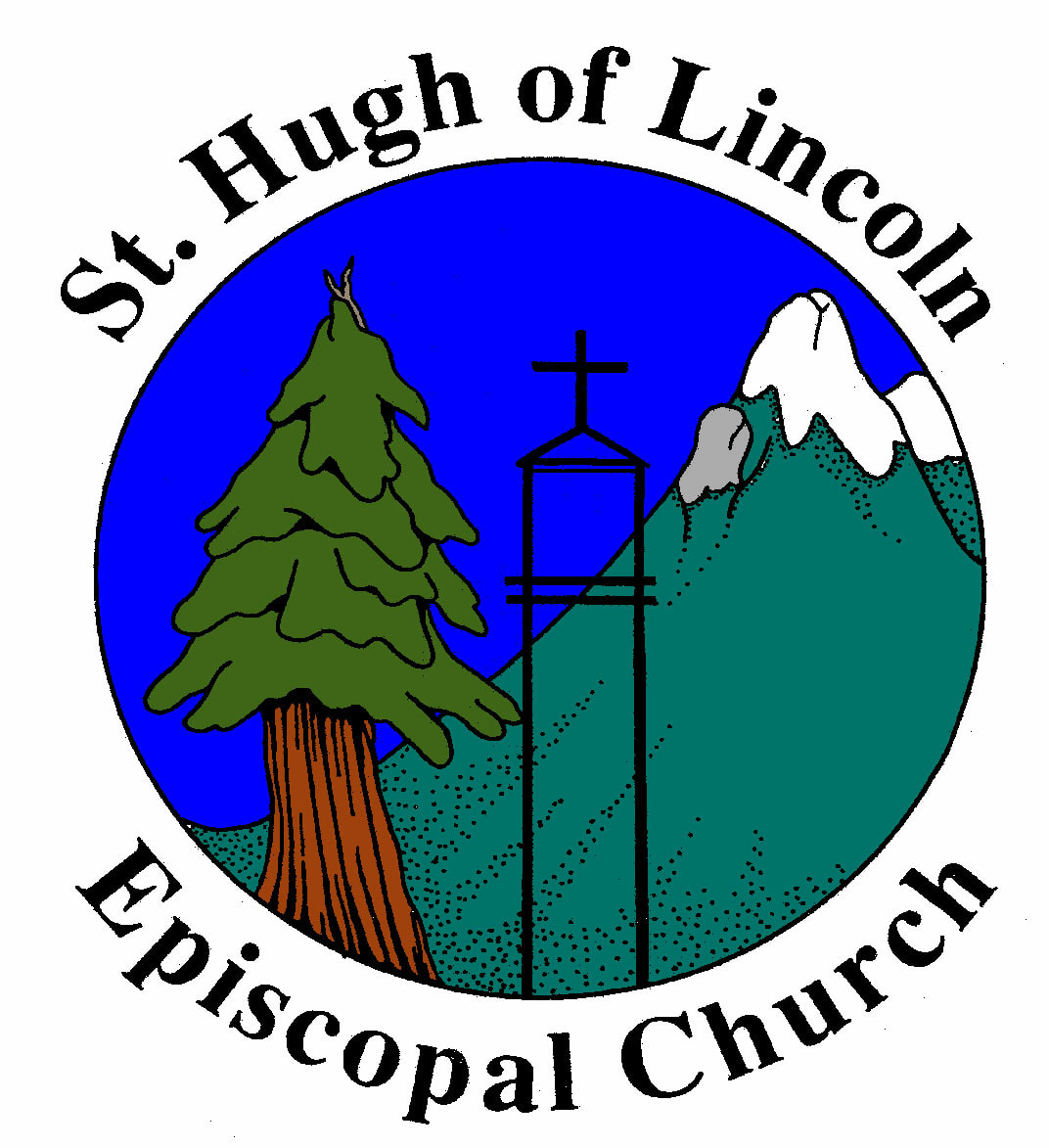Holy Week and Easter at St. Hugh's
You're invited to join us on a journey that begins with a joyful reception and then continues on into a great expression of love, a betrayal, condemnation, crucifixion, and burial; this journey culminates with even greater joy on Easter Day. Holy Week and Easter are sacred in the Christian tradition. Come join us in this sacred journey. All are welcome.
|
PALM SUNDAY. The Sunday before Easter at which Jesus' triumphal entry into Jerusalem (Mt 21:1-11, Mk 11:1-11a, Lk 19:29-40) and Jesus' Passion on the cross (Mt 26:36-27:66, Mk 14:32-15:47, Lk 22:39-23:56) are recalled. It is also known as the Sunday of the Passion. Palm Sunday is the first day of Holy Week. Red is the liturgical color for the day. The observance of Palm Sunday in Jerusalem was witnessed by the pilgrim Egeria in about 381-384. During this observance there was a procession of people down the Mount of Olives into Jerusalem. The people waved branches of palms or olive trees as they walked. They sang psalms, including Ps 118, and shouted the antiphon, "Blessed is he who comes in the name of the Lord!" The Palm Sunday observance was generally accepted throughout the church by the twelfth century.
|
|
MAUNDY THURSDAY. The Thursday in Holy Week. It is part of the Triduum, or three holy days before Easter. It comes from the Latin mandatum novum, "new commandment," from Jn 13:34. The ceremony of washing feet was also referred to as "the Maundy." Maundy Thursday celebrations also commemorate the institution of the eucharist by Jesus "on the night he was betrayed." Egeria, a fourth-century pilgrim to Jerusalem, describes elaborate celebrations and observances in that city on Maundy Thursday. Special celebration of the institution of the eucharist on Maundy Thursday is attested by the Council of Hippo in 381. The Prayer Book liturgy for Maundy Thursday provides for celebration of the eucharist and a ceremony of the washing of feet which follows the gospel and homily. There is also provision for the consecration of the bread and wine for administering Holy Communion from the reserved sacrament on Good Friday. Following this, the altar is stripped and all decorative furnishings are removed from the church.
|
|
GOOD FRIDAY. The Friday before Easter Day, on which the church commemorates the crucifixion of Jesus. It is a day of fasting and special acts of discipline and self-denial. In the early church candidates for baptism, joined by others, fasted for a day or two before the Paschal feast. In the west the first of those days eventually acquired the character of historical reenactment of the passion and death of Christ. The liturgy of the day includes John's account of the Passion gospel, a solemn form of intercession known as the solemn collects (dating from ancient Rome), and optional devotions before the cross (commonly known as the veneration of the cross). The eucharist is not celebrated in the Episcopal Church on Good Friday, but Holy Communion may be administered from the reserved sacrament at the Good Friday service.
|
EASTER. The feast of Christ's resurrection. According to Bede, the word derives from the Anglo-Saxon spring goddess Eostre. Christians in England applied the word to the principal festival of the church year, both day and season. 1) Easter Day is the annual feast of the resurrection, the pascha or Christian Passover, and the eighth day of cosmic creation. Faith in Jesus' resurrection on the Sunday or third day following his crucifixion is at the heart of Christian belief. Easter sets the experience of springtime next to the ancient stories of deliverance and the proclamation of the risen Christ. In the west, Easter occurs on the first Sunday after the full moon on or after the vernal equinox. Easter always falls between Mar. 22 and Apr. 25 inclusive. Following Jewish custom, the feast begins at sunset on Easter Eve with the Great Vigil of Easter. The Eastern Orthodox Church celebrates Easter on the first Sunday after the Jewish pesach or Passover (which follows the spring full moon). Although the two dates sometimes coincide, the eastern date is often one or more weeks later.
Each entry here is from A Glossary of (Episcopal) Terms maintained by The Episcopal Church







